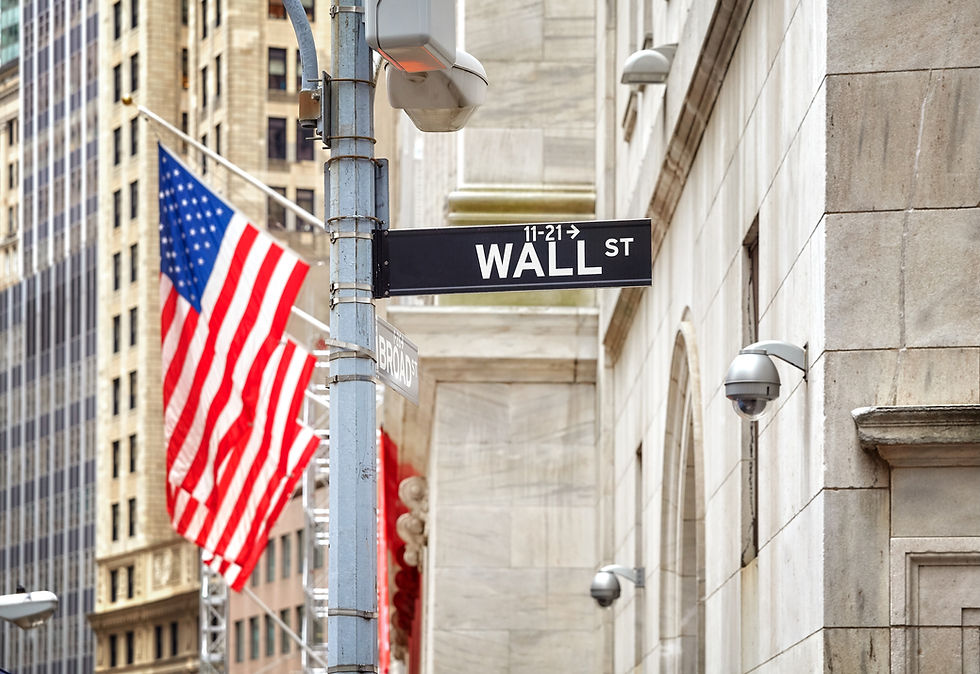11 things the SVB collapse tells us about investor behaviour
- Robin Powell

- Mar 20, 2023
- 3 min read
Updated: Oct 24, 2024

By Joe Wiggins
Before you stop reading, I promise this is not another explainer about the SVB collapse. While (too) much ink has been spilled detailing the failure of SVB; it is often useful to take a step back from tumultuous market events and consider our own behaviour. What happens to us during such stressful periods and what does it tell us about how we deal with investment risk?
1. Our time horizons contract
The key danger for investors during periods of market stress like the one we've seen since SVB collapsed is the contraction of our time horizons. Even if we have a long-term orientation, we quickly start to worry about the immediate future. All our carefully considered behavioural plans can be torn asunder, as we seek to remove the anxiety we are feeling right now.
2. We focus on one thing
It is not just that our time horizons contract, but our focus narrows. The attention of virtually all investors turns to one thing — in this case SVB and the risk of more banks going under — typically at the expense of issues far more important to our long-term fortunes.
3. We feel like we must act
Never is the most damaging investor urge of ‘something is happening in markets; we must do something to our portfolio’ more powerful than during a concerning and unexpected market event. It feels like everything is changing, so our investments must also change. We never let our failure to predict what has just happened stop us predicting what will happen next.
4. We are all ‘after-the-fact’ experts
When a significant market event that nobody predicted occurs, hindsight bias runs amok. Many people have now cogently explained the risk inherent in the SVB model, not many did so before it failed. While everyone is busy discussing what transpired, it is worth reflecting on why nobody expected it.
5. Uncertainty hasn’t increased
During stressful periods in markets it is common to hear people comment that markets are now "more uncertain". This makes no sense. Markets are always uncertain. If we felt more confident in the future before the surprising occurrence with SVB then it turns out that we were wrong. We simply don’t know what is going to happen tomorrow.
6. Market / economic predictions are tough
I don’t recall reading many 2023 market forecasts which mentioned the failure of a major bank. The problem with complex, adaptive systems is that things change / events happen and that alters everything. Let’s stop making short-term market predictions.
7. The most meaningful risks are the things we don’t see coming
Both how we think about and model risk is conditioned by what we have seen and experienced. The most profound and material risks are the ones that we do not anticipate.
8. Risks are either understated or overstated
We are prone to treat risks in a binary fashion. Either completely ignoring them or hugely overstating them. We tend not to buy flood risk insurance until our house is under water.
9. We focus on risks that are available and salient
The risks that we focus on are those that are available (in recent memory) and salient (provoking emotion). This is why rising interest rates after a period of secular decline has been so problematic (see SVB, or LDI in the UK). It is easy to be complacent about risks that have not come to pass in a long time (perhaps in our living memory).
10. This risk is now available and salient
Now the type of risk encountered by SVB has become available and salient it will be at the forefront of our thinking and decision makingwe will see it everywhere. Unfortunately, the next major risk event is likely to be something that is not.
11. Exciting stories overwhelm risk awareness
A useful rule of thumb is that the more compelling an investment narrative — the more adulatory front pages and gushing stories — the greater the hidden risks. There are two reasons for this. First, good stories can leave us blind to detail. Second, when a captivating story is working or making money, it can feel too costly not to join the party.
Unexpected market events like the SVB collapse are anxiety inducing and provoke some of our most damaging behaviours. It will be in most investors interest to focus less on the current issue and more on our response to it. Sensible investing principles — such as taking a long-term perspective, systematic rebalancing and being appropriately diversified — are designed to deal with situations like these. Let’s not forget them.
JOE WIGGINS is the editor of the Behavioural Investment blog and the author of The Intelligent Fund Investor, which is published by Harriman House.
© The Evidence-Based Investor MMXXIV. All rights reserved. Unauthorised use and/ or duplication of this material without express and written permission is strictly prohibited.



